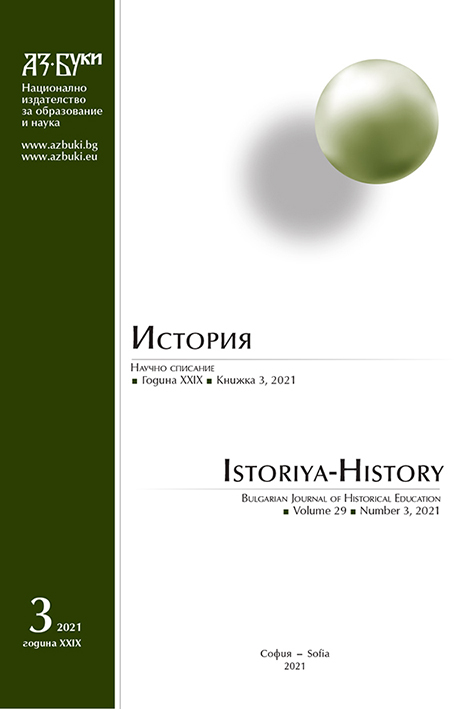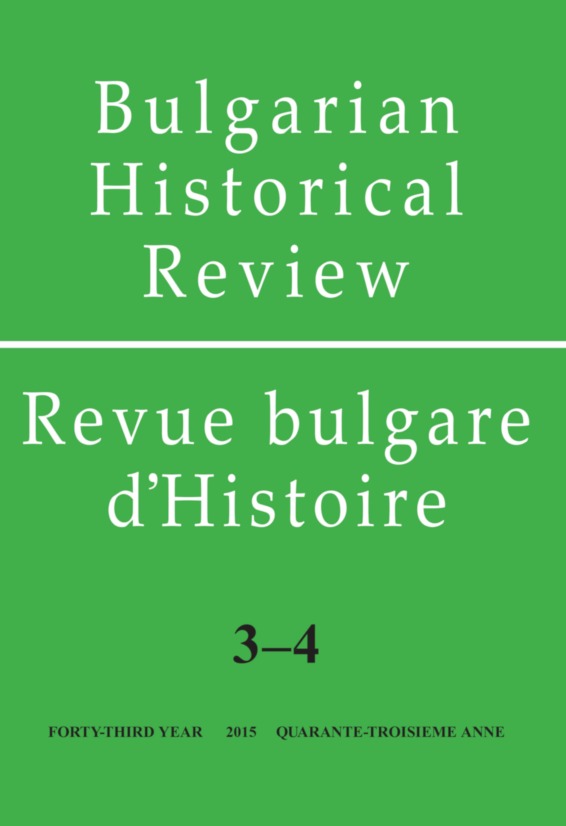
We kindly inform you that, as long as the subject affiliation of our 300.000+ articles is in progress, you might get unsufficient or no results on your third level or second level search. In this case, please broaden your search criteria.

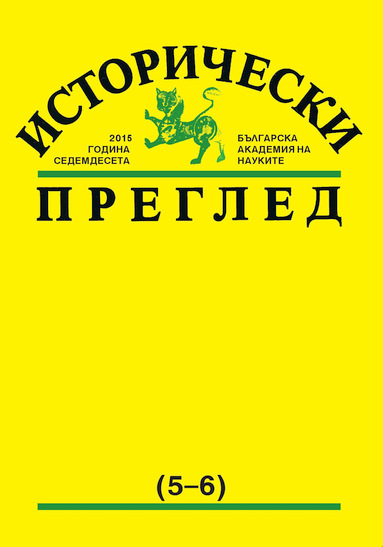
The article examines the contribution of the Czech Revival philologist, publisher and poet Vaclav Hanka (1791–1861) to the Czech-Bulgarian cultural relations and contacts. The author analyzes in more detail his short translation called A Short History of the Slavonic Peoples in Ancient Times (1818), based on the Friedrich Christian Ruhs (1781–1820) book Handbuch der Geschichte des Mittelalters (1816). The chapter devoted to the history of medieval Bulgaria is the first specialized Bulgarian study published in Czech. Hanka has not written a whole bulgarian article on his own (except for the Bulgarian supplements in his research in the field of palaeoslavistics) and is restricted to resolving works of his colleagues and excerpts from the correspondence of his friends, mainly the Russian Slavonic scholar Izmail Ivanovich Srenevski (1812–1880). Nevertheless, for many Bulgarians, he was invaluable advisor during their trips to Bohemia (eg. Ivan Andreev Bogorov, Konstantin Dimitriev Petkovič, Ivan Vasilev Shopov, Petăr Beron, Konstantin Pavlov, Dimităr Stefanov Mutev or Nathanail Zografski) and discoverer and publisher of “Kralovedvorski manuscript” and “Zelenogorski manuscript” pseudo old Czech poetic mystification of the early 19th century, which are considered precious monuments from the 13th and 10th century (to their Bulgarian translators – besides the already-named Petkovič and Shopov – belong Teodosi (Bogdan) Ikonomov, Rayko Zhinzifov, George Benev and Atanas T. Iliev).
More...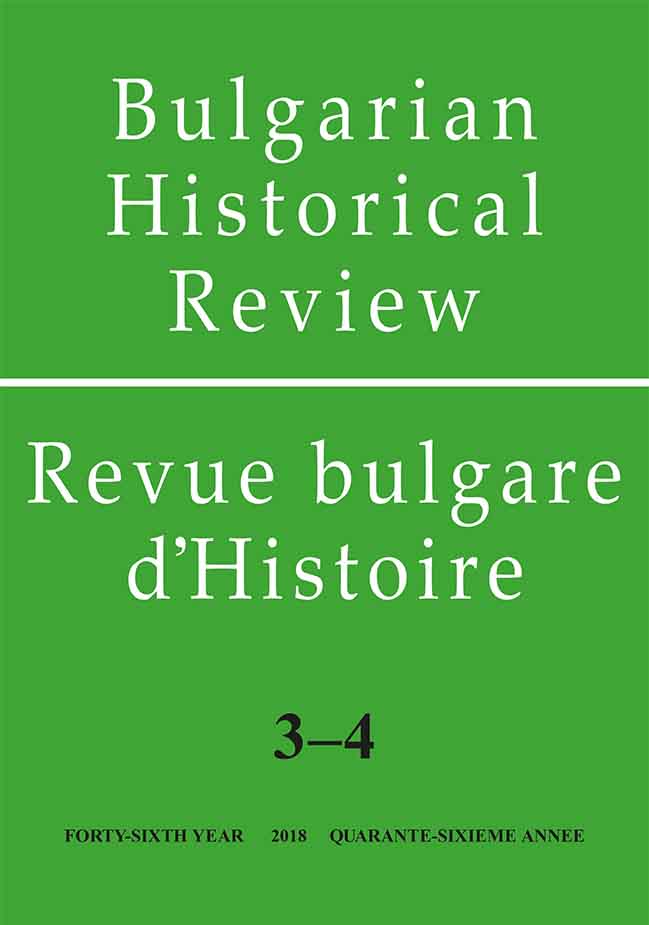
The article examines the scientific work of the Institute for Historical Studies at the Bulgarian Academy of Sciences since its establishment in 1947 to the present day in the context of the general development of historical science in the second half of the 20th century. The era of communist totalitarianism had a heavy impact on the research of historians. They had, willingly or unwillingly, to study historical processes following the ideological formulations set by the Communist Party. In the 1960s, a slight liberalization of public life began, allowing for a more adequate examination of a number of issues from Bulgarian and world history, mainly from the point of view of the facts. Since the fall of the communist regime in 1989, the ideological constraints on historical science and the work of the scientists at the Institute for Historical Studies fell away too. Research freedom, as well as the wide opening of archives, allowed historians to start exploring many new themes and to seriously reconsider others. However, the new conditions in which historical science has been evolving give rise to a number of challenges. In short, the task of historians in the new conditions is to create historical texts that are freed from the myths that have accumulated over time; to give the most accurate picture of the past and thus to offer to society appropriate solutions to the current problems in its development.
More...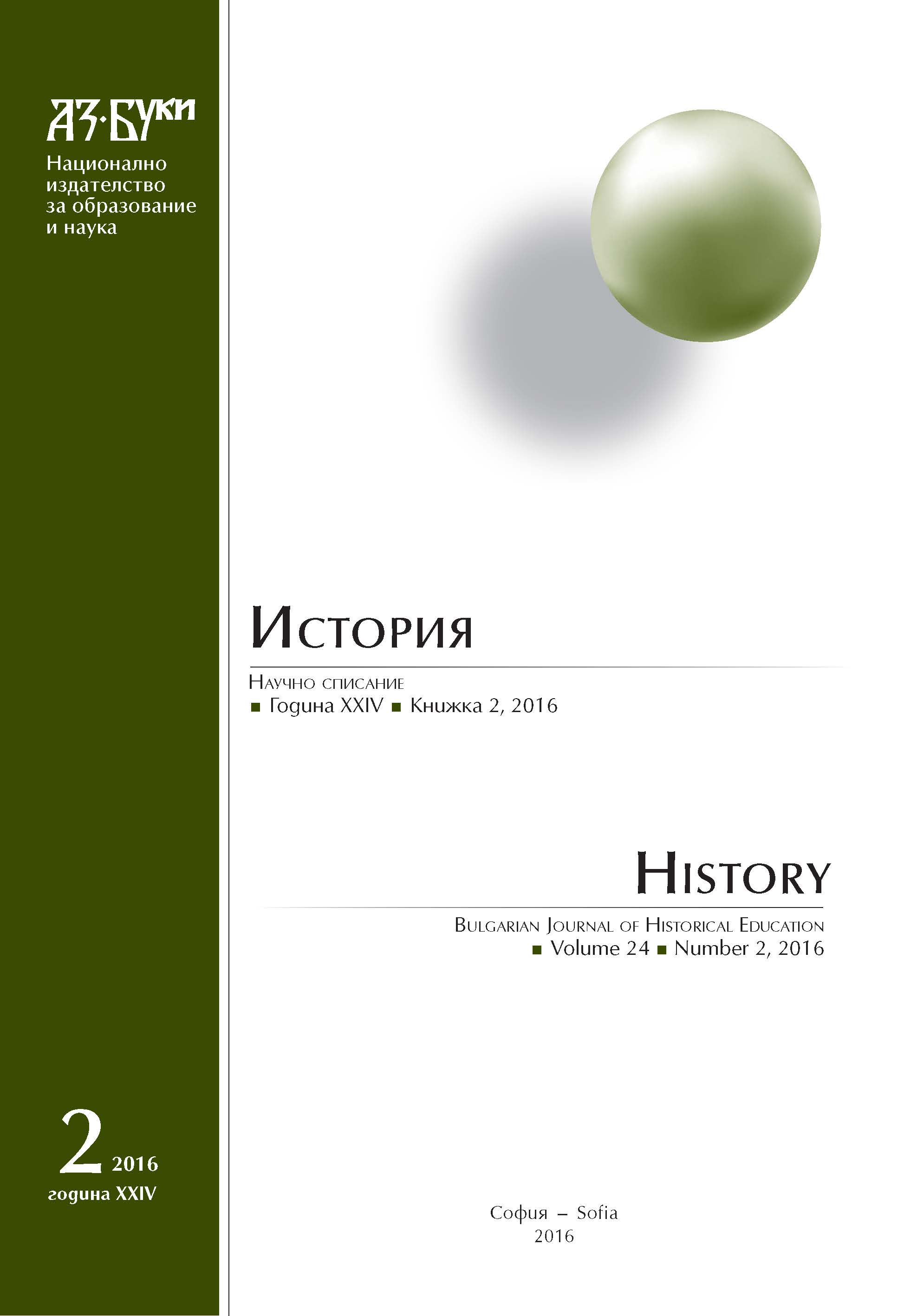
The main purpose of this article is to show the different aspects of abolitionist literature in United States during the mid-nineteen century. The wide historiographical view of this subject brings to the reader chance to receive accurate knowledge over this object. Over the last few decades the rhetoric over the abolitionism debate is circulating in many aspects, in a slightly range of historical researchers. Important target of this lemma is to show the main and impacting literature and newspaper writings in USA during relevant period.
More...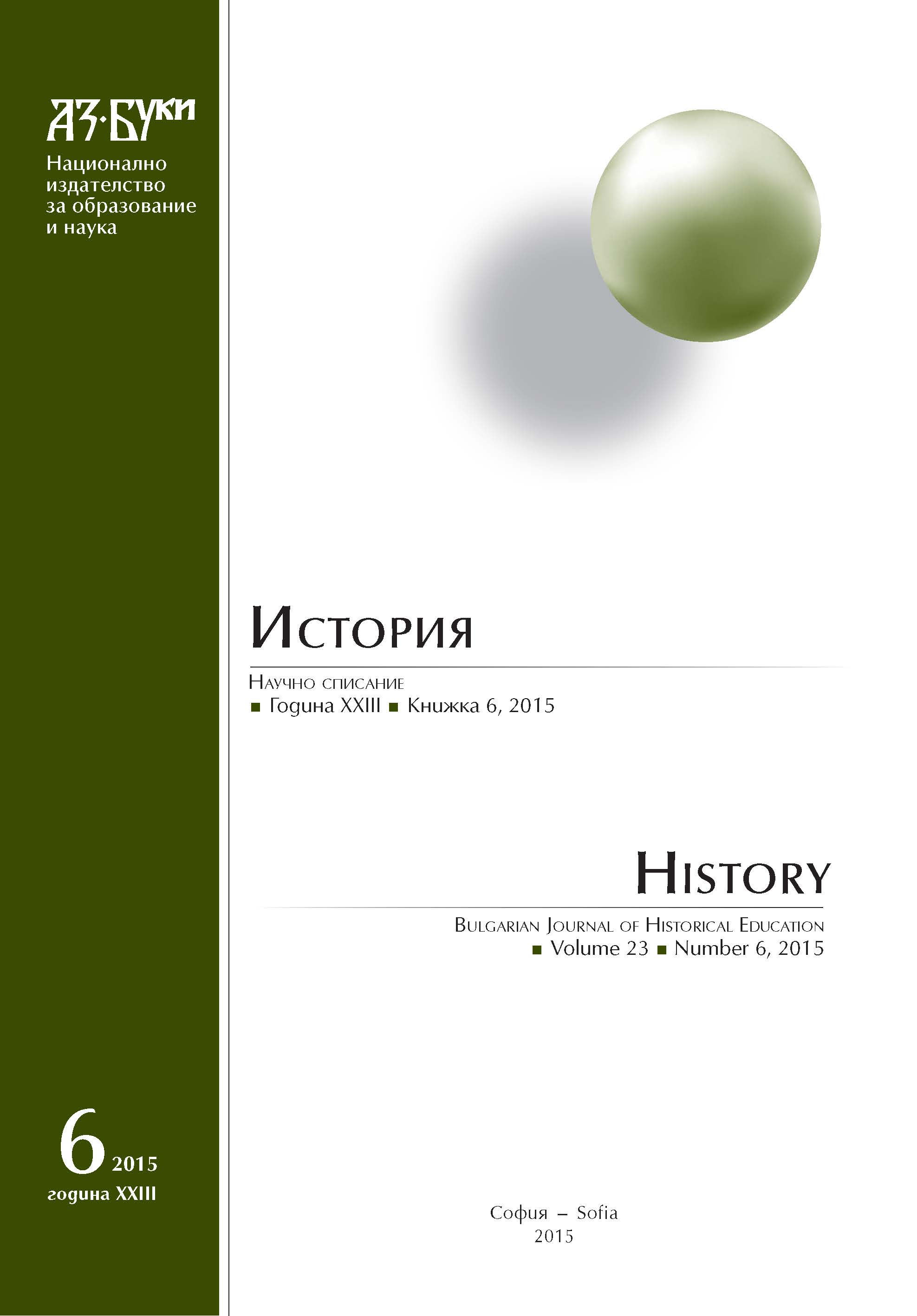
The political construct established in 1814 – 1815 by Napoleon’s victors aimed at uniting Belgians and Dutch in one country the Netherlands governed by William of the Orange-Nassau dynasty. The construct was theoretically useful for the European balance but at the same time it turned out to be anachronistic because it took into consideration neither the religious differences nor the continuous formation of two completely different nations.
More...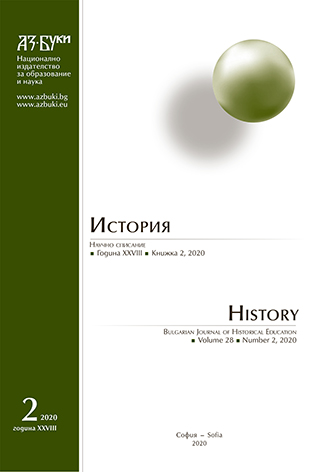
Събев, О. (2019). Просветени на Изток с лъчите на Запада. Българската ученическа колония в Цариград. София: Авангард прима, 646 стр.
More...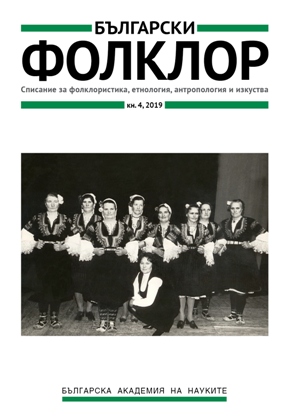
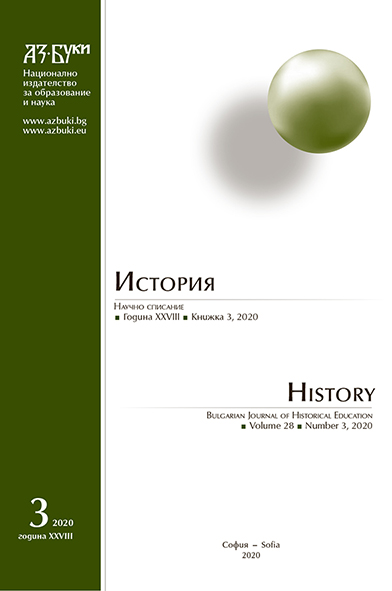
The article dwells into the ideological development and evolution of the Balkan policies of Adam Czartoryski’s Hôtel Lambert – one of the Polish political camps in exile, represented by the conservative-liberal and monarchic ideas. The geopolitical changes in Europe at the end of 1830’s forced Czartoryski and his émigré camp in Paris to shift their political concepts. As a culmination of that new course, Hôtel Lambert established a permanent Eastern Agency in the Ottoman capital, which was headed by the Polish agent Michał Czajkowski. And it is no coincidence, since after the second Ottoman Egyptian Crisis the East was no doubtfully established as a focal geopolitical point.
More...
Understanding the socio-cultural significance of the experience of the past in solving the problems of the present causes a growing interest in historical education and focuses on finding effective methodological approaches to translating knowledge about the past through education. One such approach is an intersubjective approach. The paper deals with the humanistic potential of an intersubjective approach to understanding the Other and fostering the ability to compromise through historical education. A well-considered attitude towards the Other, an inner interest and understanding of the significance of the other presence implies that in the social deprivation of hostility, the inadmissibility of domination and oppression in my Self of the world of the Other Being will be deprived. Both are understood as correlates of intersubjective constitution of reality. In dialogue interaction Otherness is not subordinated, it is assigned to my Self, it remains an “insoluble” individuality. Content analysis of history books of Ukraine has shown that they are conceptually sustained, lacking stereotyped and impartial assessments of the racial, ethnic, cultural nature of the Other. However, ambiguous historical events involving different peoples and states are not alternatively presented. The narrative in the textbook undoubtedly should be the Ukrainian ethnic group as the core of national history. At the same time, using the anthropological and territorial principles as the core of the story, the textbook should strive for Ukraine to be perceived as space where other ethnic communities whose existence is an integral part of Ukrainian history reside alongside Ukrainians. Relevant in overcoming the false image of historical education is the development of the ability to think critically about historical facts, to give them their own judgment. Understanding of the historical process from the point of view of an intersubjective approach will contribute to the formation of a person’s tendency to cultural tolerance, tolerance and dialogue with the Other, the realization that the Other is also entitled to a mistake or his own ratio, the ability to see the world in all its diversity and uniqueness.
More...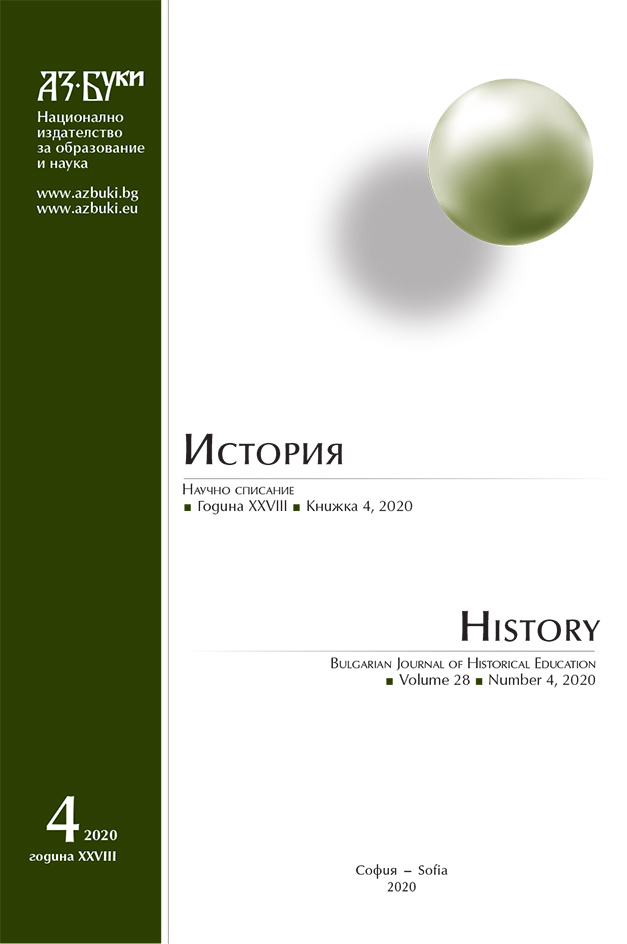
The article presents research on the Military Order of Courage and Soldiers' Cross for bravery of His Majesty's Navy during the Balkan Wars and World War I. The interest is focused on the conditions in which the ship's crews and shore units were assigned in solving combat tasks, the scale of force of the forces in counteraction to a repeatedly superior opponent, the contribution of the most prominent of them to success, and the assessment that was given to them. The award-winning Naval Officers are presented as an association of professionals and like-minded people who have built an organic society of the Knights of Courage. Later periods of activation of the Military Order are shown in fragmentary form.
More...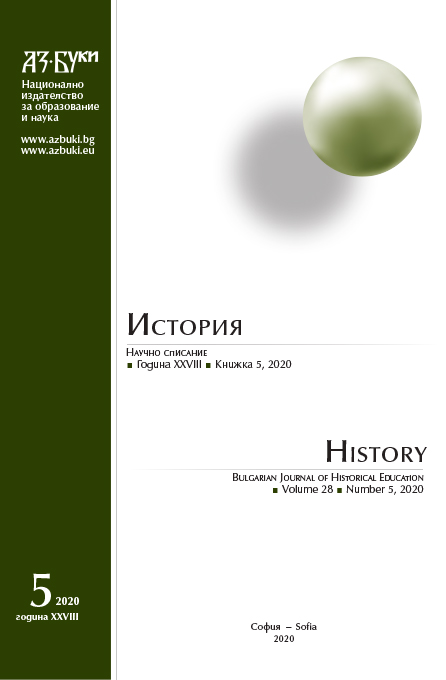
The article presents an analysis of honesty as an important aspect of the Bulgarian economic culture. The focus is on the transition from the Bulgarian Revival to the nation state and the subsequent period 1879 – 1944. The main conclusions are synthesized in two hypotheses. The first is that the transition from Ottoman rule to an independent nation-state is associated with a decline of honesty and integrity in economic life. The second hypothesis points to the low level of honesty and mutual trust in relations between economic agents on the one hand and between economic agents and the state on the other as one of the important reasons for the lack of visible and long-lasting economic success in Bulgaria during the period 1879 – 1944.
More...
El Estatuto Real is a piece of legislation passed in the Spanish monarchy in 1834, representing a “donated” charter, which does not derive from the principle of national sovereignty, but on the contrary – represents the benevolence of the monarch to his subordinates. Although the text of the decree lacks a description of the rights of the population, does not contain a clear and comprehensive definition of the prerogatives of the various authorities, it should be noted that it puts an end to the theoretical principles and ideological statements of the Ancient Régime. Thе article analyzes this document, which presents the moderate liberal views, and in our opinion is an elegant attempt to strike a balance between the traditional principles, institutions and attitudes of the Catholic monarchy, while presenting Spanish society the opportunity to begin building a limited monarchy where the principles of liberalism are largely imposed.
More...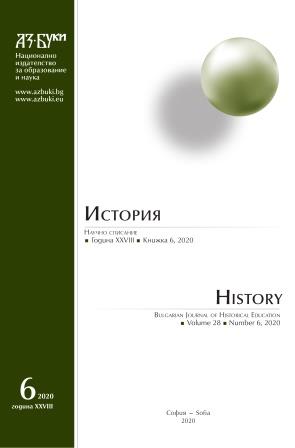
At the end of 1917 and the beginning of 1918, the process of the nationalization of army units took place on the Romanian Front of the Russian army. In conditions of army disintegration, in order to keep the front fighting against the Central Powers, the Russian Command planned to create two Ukrainian, two Polish, one Muslim corps, as well as Belarusian, Lithuanian, Moldovan, and Siberian military units. During the nationalization of troops on the Romanian Front, the entire corps and divisions, as well as smaller military units were given over to Ukrainization, Polonization, Muslimization, etc. Based on archival documents, the article identifies the numbers of major military units, smaller units and subdivisions intended for nationalization, and traces the course of nationalization. The causes of failures of the nationalization process were determined, and the fates of the nationalized formations of the Romanian Front were traced.
More...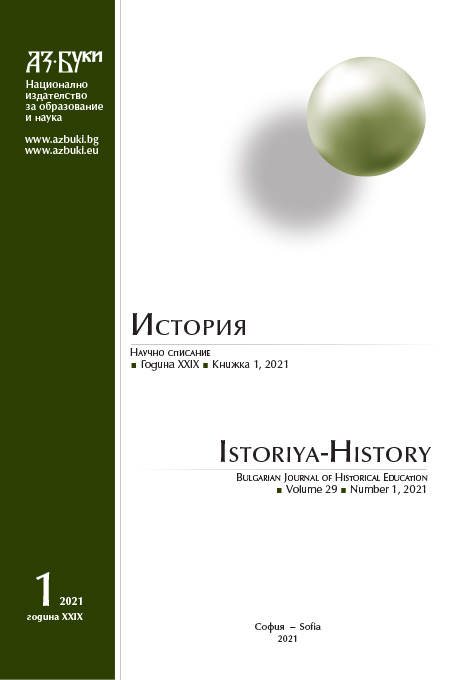
Bulgarian historiography did not find to date a documentary source based evidence that firmly establishes 6 July 1837 as the birth date of Vasil Levski. Therefore, other hypotheses placing the birth of Levski in 1846 or 1843 have lately been put forward. The present article examines data from the population registers of Karlovo, kept in the Ottoman archives in Istanbul, and argues that 1840 is Vasil Levski’s most probable birth date.
More...
The aim of the text is to create a prosopographical portrait of the merchant-entrepreneurs from the Danubian town of Svishtov during the Bulgarian National Revival period. I will shed light on merchants’ family background, education, individual qualities, etc. Most of the merchants were born in Svishtov. On the other hand, there are persons who fled from their native places and settled down in Svishtov. Some of them chose to settle in Svishtov in order to find better prospects for professional realization and peaceful life. Often these people are not highly educated, although there are some exceptions. Despite the lack of high and/or specialized education, they compensate with their individual qualities such as natural intelligence, resourcefulness, diligence, perseverance and honesty. They used “strategic marriages” to preserve, and to extend their wealth. They created entrepreneurial networks through which exchanged information with their relatives, acquaintances and friends. They used commercial and personal letters. Some of them were fluent in foreign languages. They used different kinds of commercial ledgers. They managed to benefit from the advantages brought to them by the economic situation in the 18th and 19th centuries. All of them participate, according to their abilities, in the public life of their native Svishtov.
More...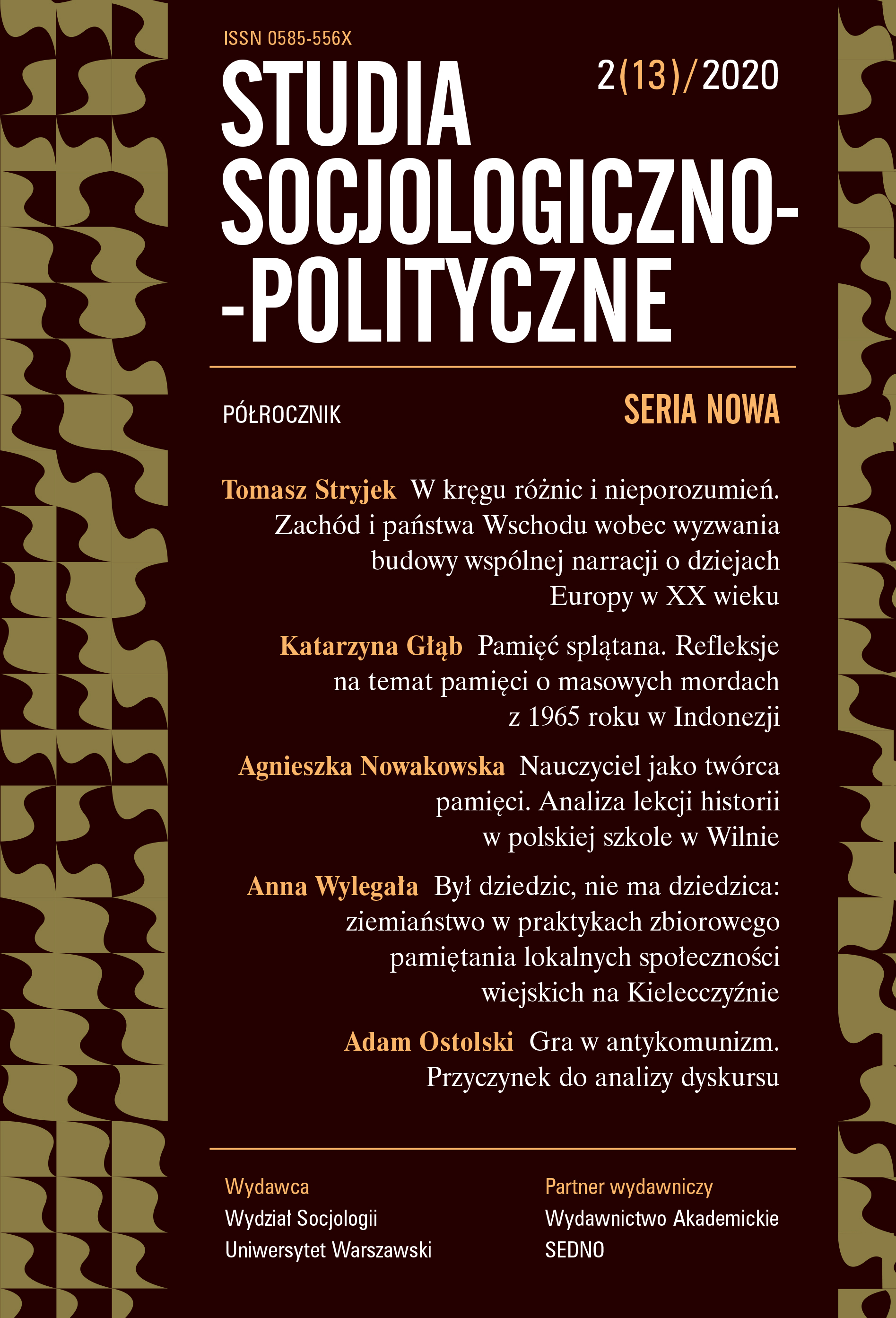
This essay is dedicated to a book written by Tomasz Rawski titled "Boszniacki nacjonalizm. Strategie budowania narodu po 1995 roku" (Eng.: "Bosniac nationalism. Nation-building strategies after the year 1995") which was published by Wydawnictwo Naukowe Scholar in the year 2019. Basing on an analysis of contemporary politics of memory in Bosnia and Herzegovina relating to the 1992–1995 war, the author presents two antagonistic nation-building strategies.
More...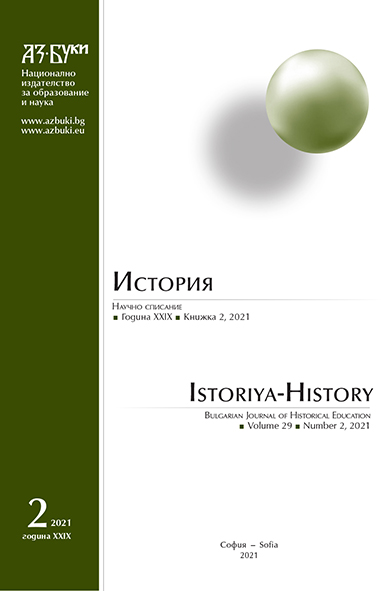
The article concerns the recently published study by Plamen Mitev and Grigor Boykov about the year of birth of the Bulgarian national hero Vasil Levski. The authors firmly established 1840 instead of hitherto accepted 1837. The new evidences about the birth year of Levski require also a revision of the birth day. The article proposes that the Apostle of Freedom was born on 9/21 of July 1840.
More...
The article introduce poorly researched or completely unknown documents, revealing many unknown data about the builders of public buildings in Koprivshtitsa in the period 1817 – 1858. The obscurity of the information contained in this rich source material, creates a great void in our knowledge and sometimes leads to repeated inaccurate or unreliable information, based on uncertain memoirs. The article present the data from the documents containing the names of the people who created wonderful examples of the Bulgarian Revival architecture in Koprivshtitsa in the XIX century.
More...